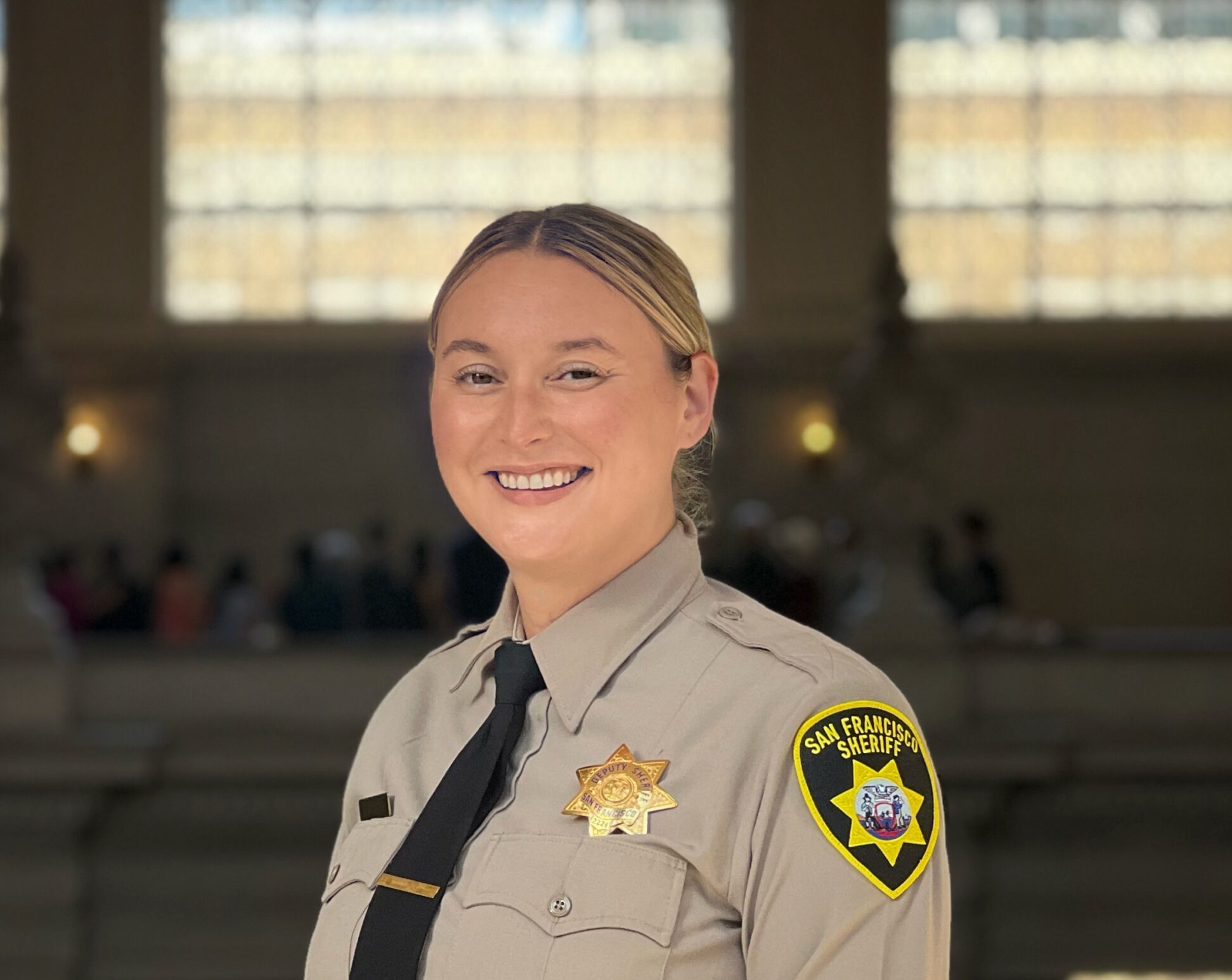Deputy Sheriff Amanda Fox
San Francisco Sheriff’s Office
San Francisco, CA

Q: Why did you become a Deputy Sheriff?
I became a Deputy Sheriff in 2016. I always knew that I wanted to work with and advocate for underserved individuals and communities, but I wasn’t sure how. I have a Bachelor’s Degree in Social Welfare from UC Berkeley. I was first introduced to the Bay Area’s diverse homeless and justice involved communities while doing volunteer work as an undergraduate student. During this time, I saw firsthand how homelessness and substance abuse could lead someone into the incarceration system. My studies in social work, combined with my personal passion for criminal justice, led me to consider a job in Law Enforcement. I have never regretted this decision.
Q: What motivates you to succeed?
I am motivated by the endless opportunities that this career has to offer. Most of my coworkers would say that I am not easily satisfied and am always wanting to do more. I have always been driven to learn as many things as possible and I am motivated to be the most well-rounded Deputy that I can be. I have spent the last 6 years working in a custody setting and I hope to soon advance my career by learning other specialties, such as becoming field trained or becoming an Investigator. I also hope to become a training officer. I desire to learn for not only my own personal growth, but to educate the next generation of Female Deputies as well.
Q: What is your most memorable moment on the job?
I am most proud of the day I received my badge. I started the police academy at the age of 31, after years of searching for a career that would give me a purpose. It took me a little while to find it, but graduating the police academy proved that I was on the right track. I am excited to see where this career will take me.
Q: What challenges have you faced?
I think one of my biggest challenges has been learning how to succeed in this job without losing my identity. Law enforcement officers come in all shapes, colors and sizes, and I think it is important to showcase that. There are so many stereotypes and preconceived notions surrounding police work and the average officer, and the constant need to prove myself can be daunting. I strive to stand out and show what I can bring to this profession in my own unique way. I know what I stand for and what I believe in. I want to show people the positive things that Law Enforcement offers. Learning how to do my job in a way that allows me to stay true to myself was a big turning point in my career.
Q: What advice do you have for women considering a profession in policing?
There are so many different things that we can do in this career and the profession needs us. Law enforcement needs women from all different types of backgrounds to help propel us to where we deserve to be. Find something that you are passionate about and work for it. And don’t forget to advocate for yourself along the way.
How we’re changing policing
The 30×30 Initiative is a coalition of police leaders, researchers, and professional organizations committed to advancing and supporting the representation, experiences, and well-being of women at all levels of law enforcement, both in the U.S. and beyond.
Research shows that women play a crucial role in building community trust, de-escalating conflict, and improving public safety outcomes, with evidence linked to reduced use of force and enhanced relationships with the communities they serve. However, women represent less than 14% of sworn officers and 20% of recruits in state and local law enforcement agencies. Additionally, about 40% of the approximately 18,000 law enforcement agencies in the U.S. have no full-time women officers (Source: Bureau of Justice Statistics).
We are collaborating with hundreds of agencies to make law enforcement a profession where qualified women who are drawn to it feel welcomed and supported while ensuring agencies address their unique needs and foster their success.